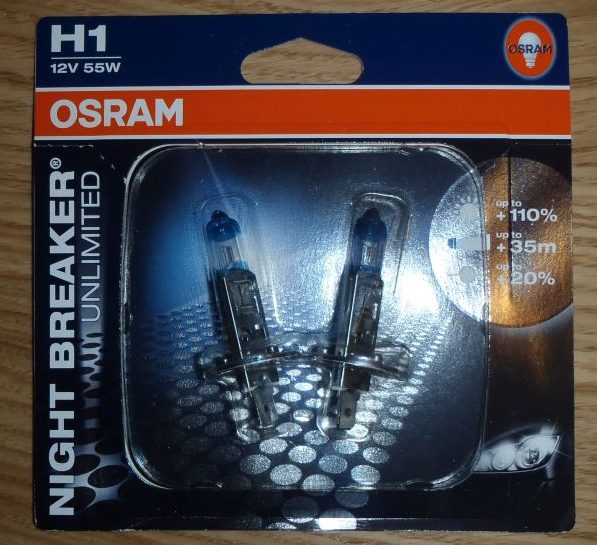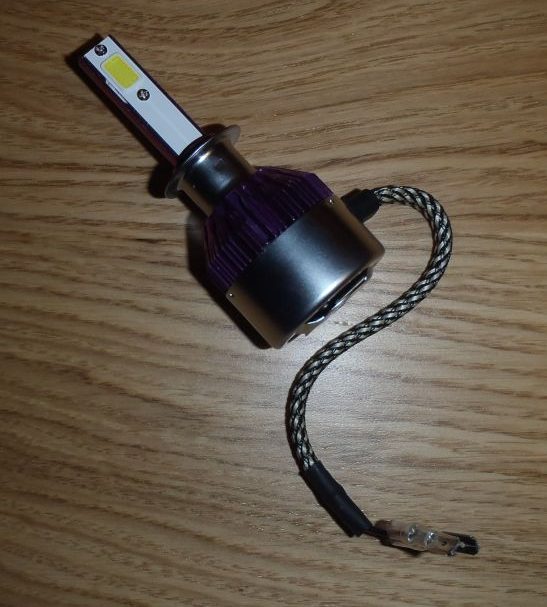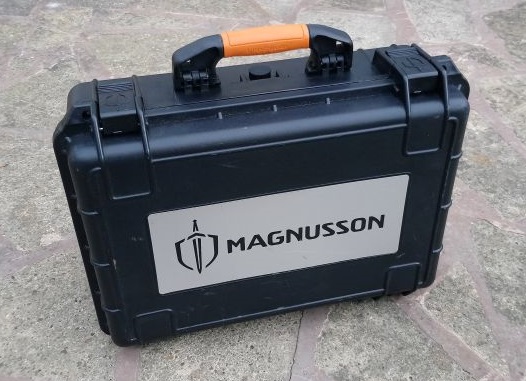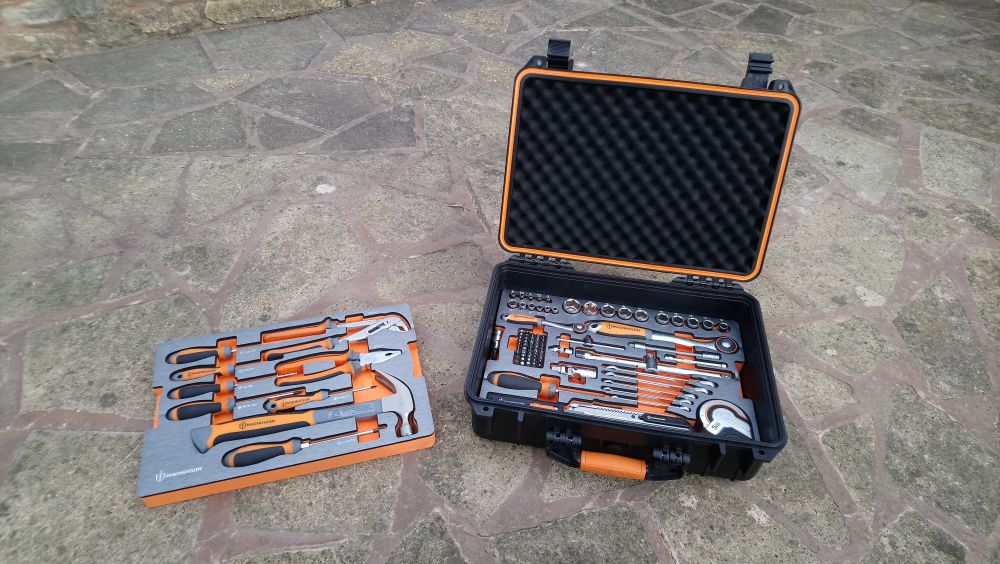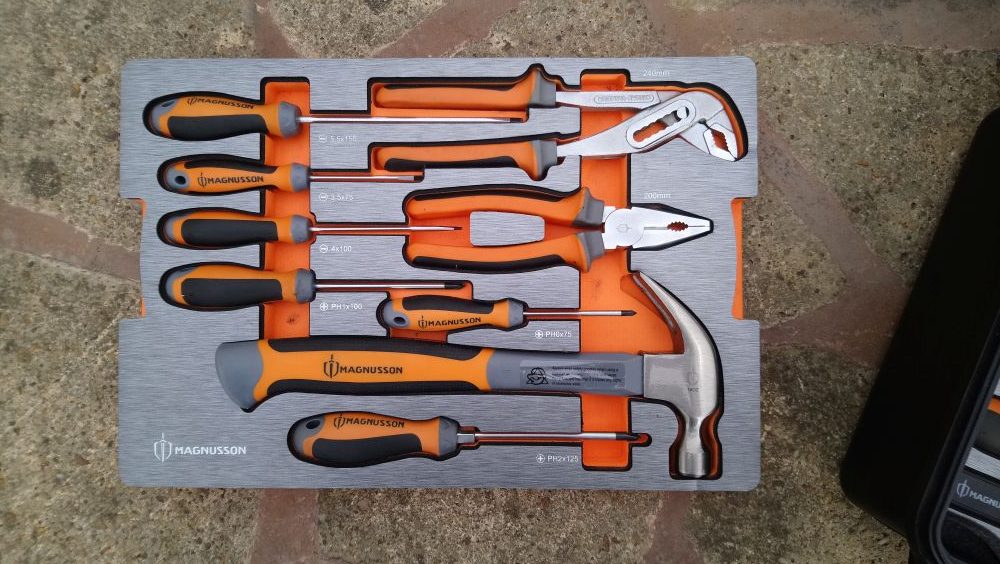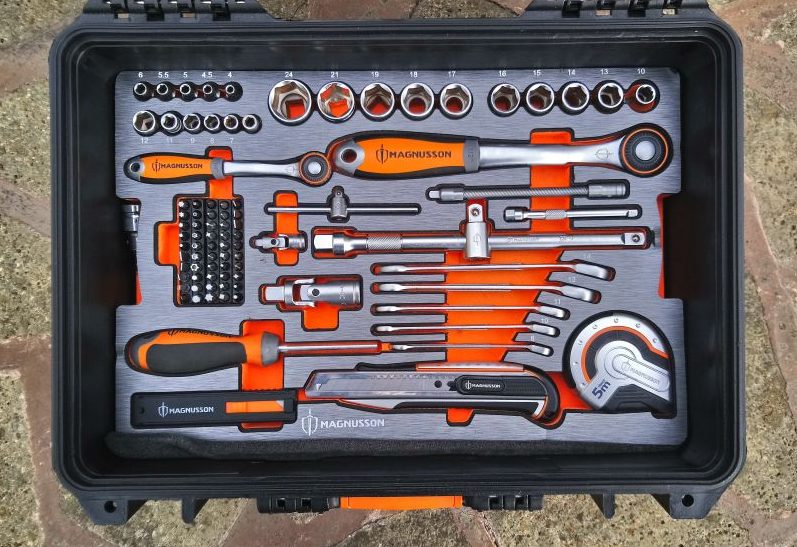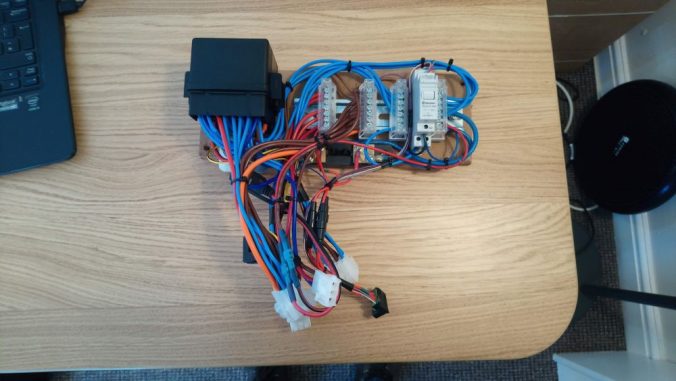For a while we had a nasty vibration in the van (1999 Ducato Hymer B544) when climbing hills at full load around 60-70mph, this turned out to be due to a worn CV joint in one of the driveshafts. In a motorhome the driveline has a pretty tough life – pulling a vehicle that is fully loaded pretty much permanently – so I decided to replace both the driveshafts while I as at it – here’s how:-
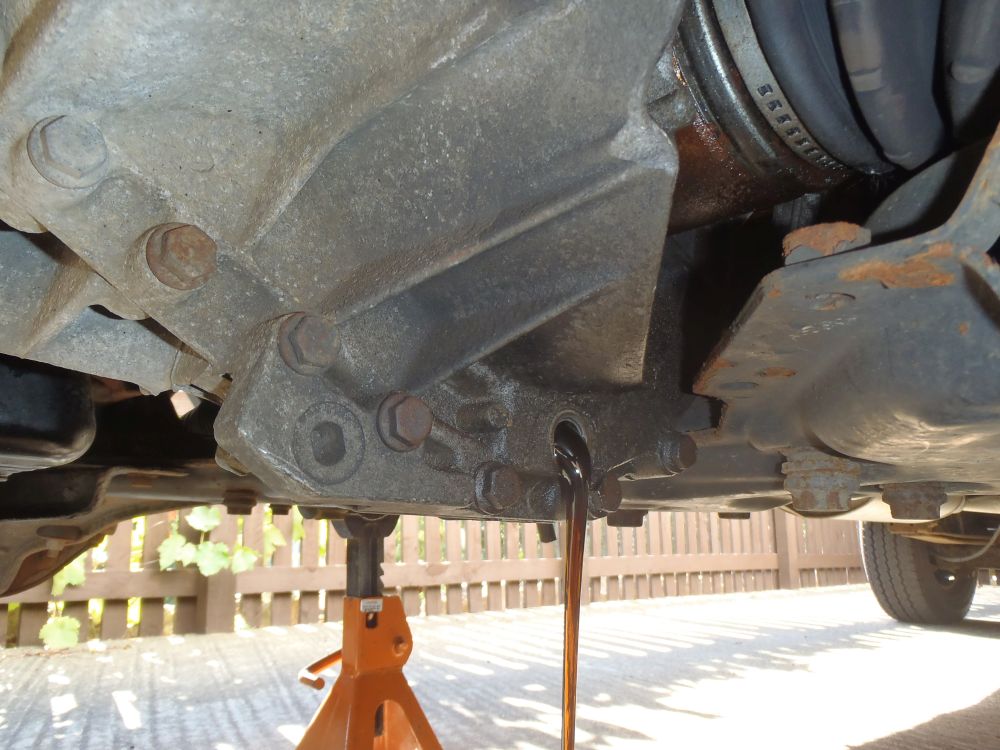
First job was to secure the van on axle stands and drain the gearbox oil (it will all come out anyway when you remove a driveshaft, so you might as well do it now!) The drain plug is in the bottom of the gearbox underneath the inboard end of the left hand driveshaft.
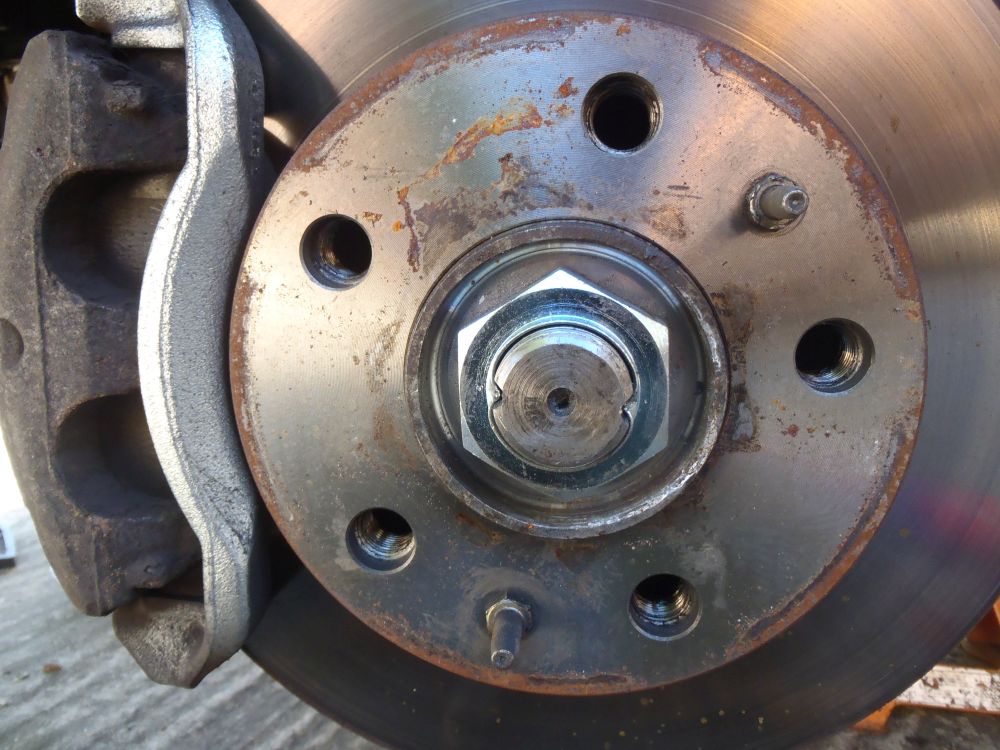
I replaced the left hand driveshaft first, to release the driveshaft from the hub you need to remove the large hub nut which is staked onto the driveshaft – it will be VERY tight!
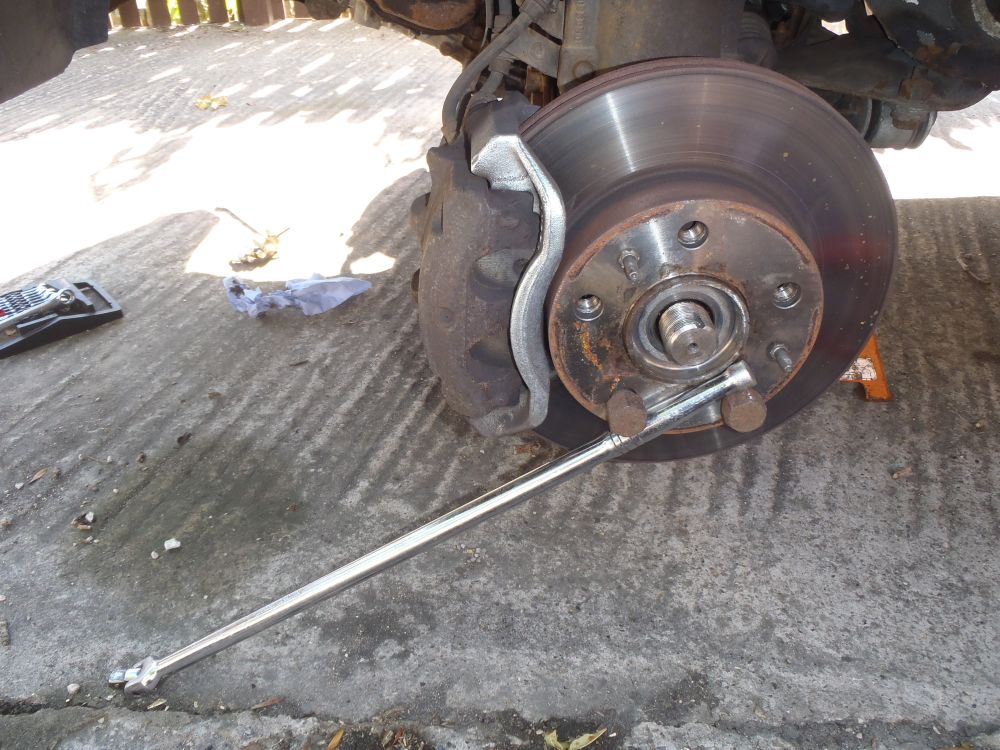
To stop the whole assembly from turning while you remove the hubnut you can put a couple of wheel bolts back in and use a large bar to brace it like this – I used a 1/2″ breaker bar for this.
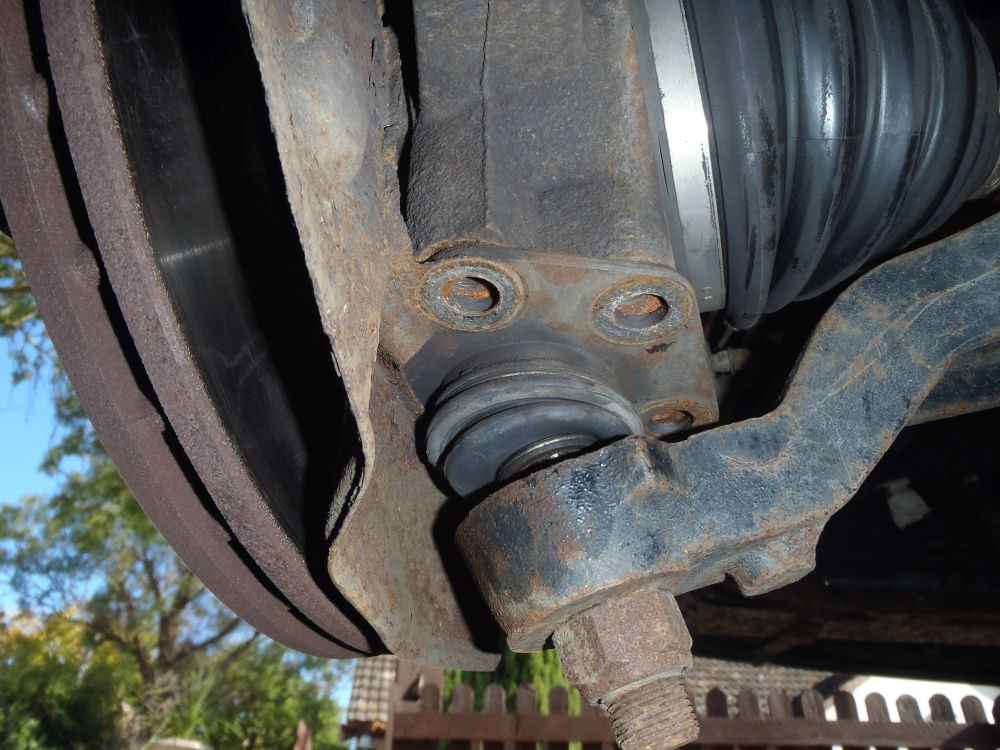
To free the end of the driveshaft from the hub we need to be able to move the hub away from the gearbox. There are a couple of ways to achieve this but I find the easiest method is to unbolt the lower ball joint from the hub to allow the whole suspension strut to swing outwards.
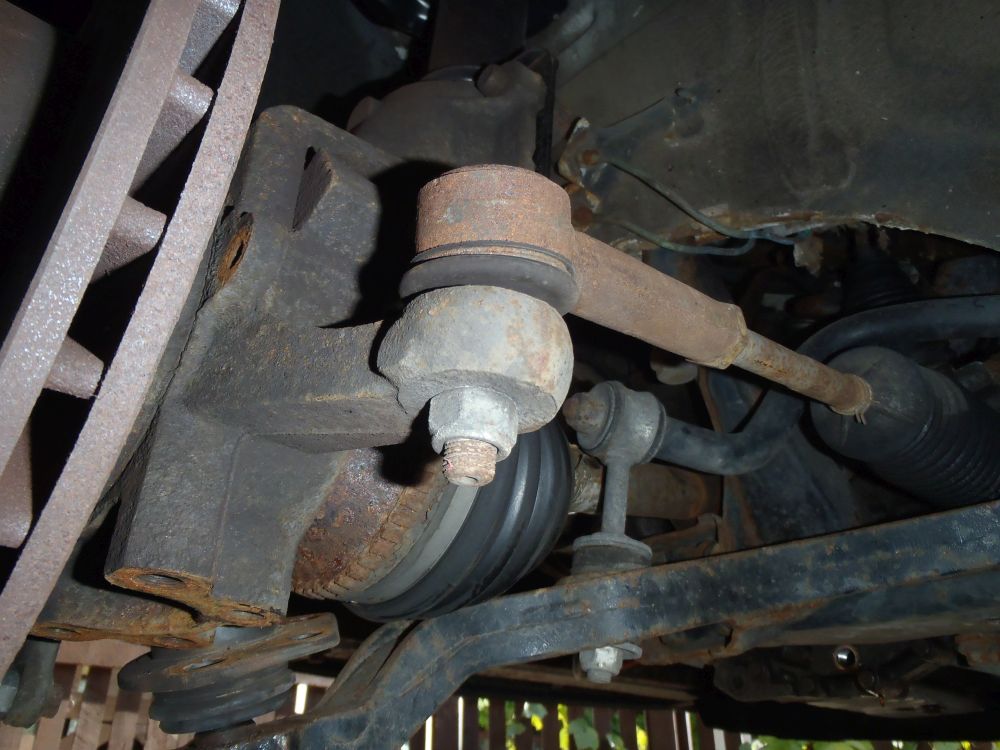
To allow the strut to move far enough you will also need to disconnect the steering arm by removing the ball joint securing nut.
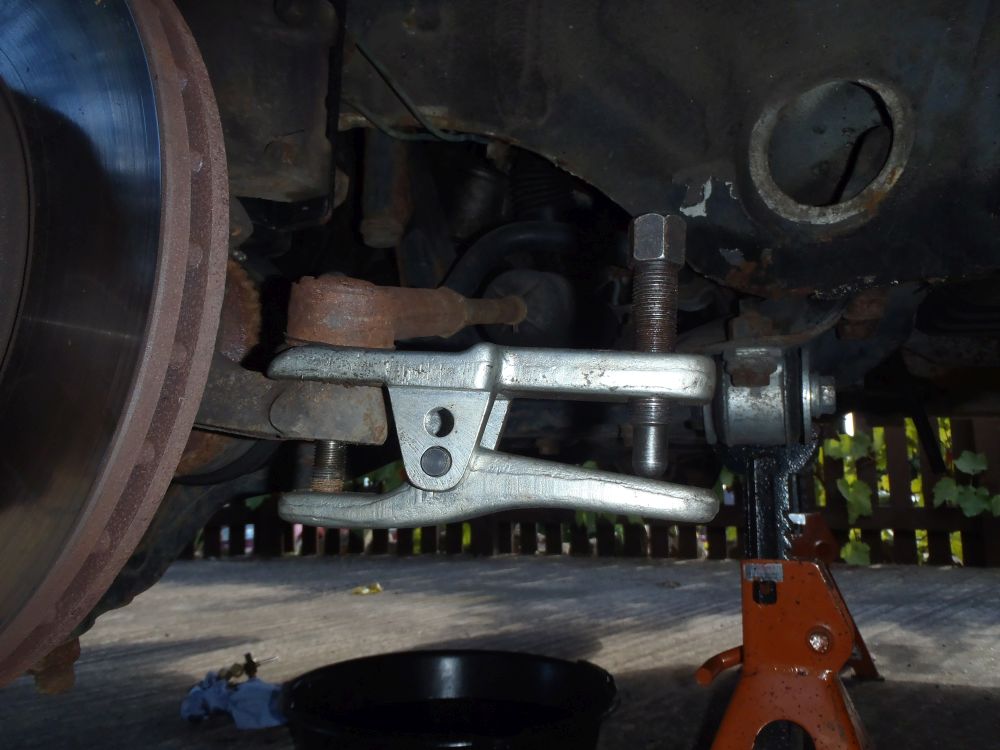
A large ball joint splitter can be used to free the ball joint from the hub. If you don’t have a splitter you could instead unscew the steering rack arm from the ball joint, but this can upset the steering geometry if you don’t screw it back in by the exact same amount when you reassemble it.
Note: you will need to lever the lower suspension arm downwards to separate the arm from the hub. Disconnecting the anti-roll back drop link from the suspension arm will make this easier.
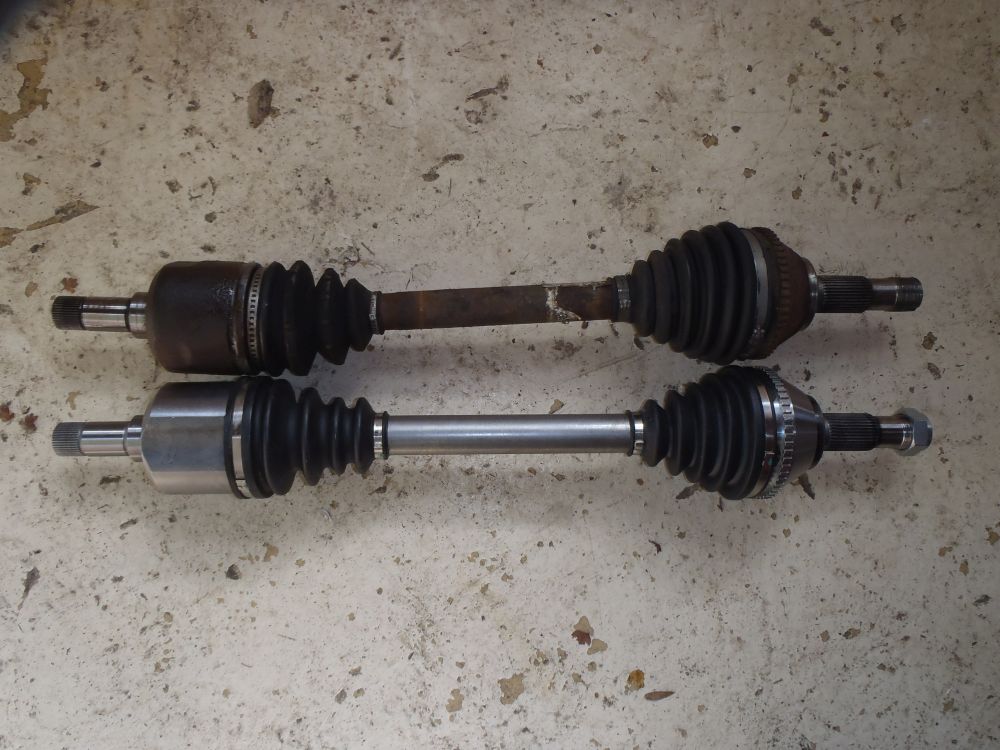
Once the outer end of the driveshaft is free from the hub you can pull the whole thing out of the gearbox – it might need a sharp tug on the inside CV joint to free it. Here is the old driveshaft on the top, shiny new one underneath.
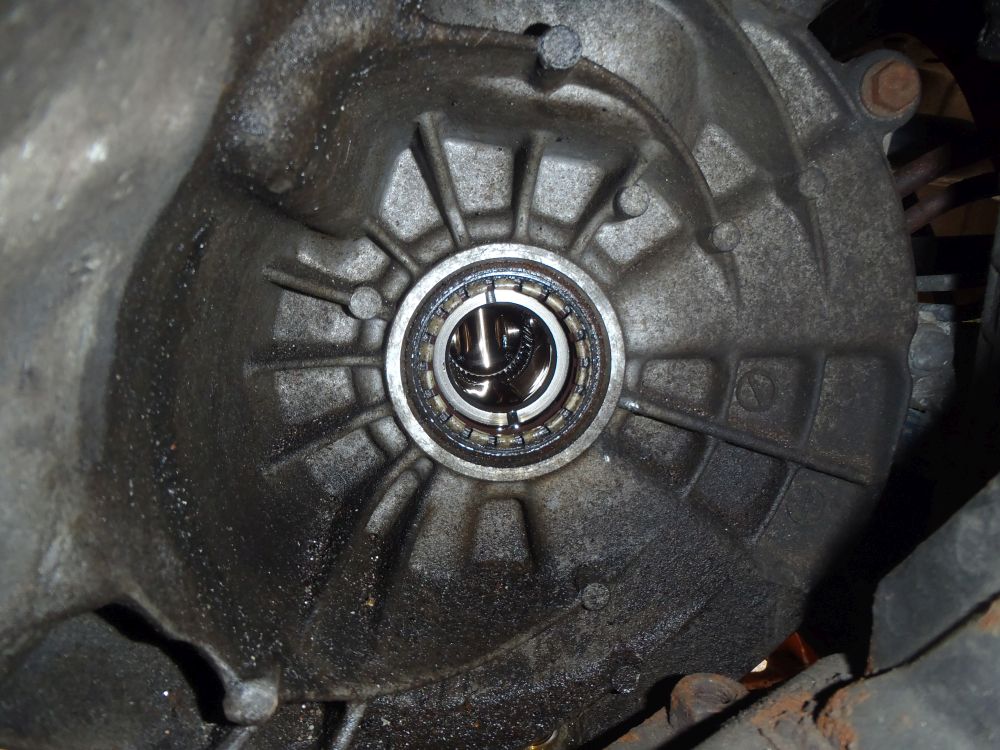
It is a good idea to replace the driveshaft seals in the gearbox while the driveshafts are out – here is the old seal at the gearbox output.
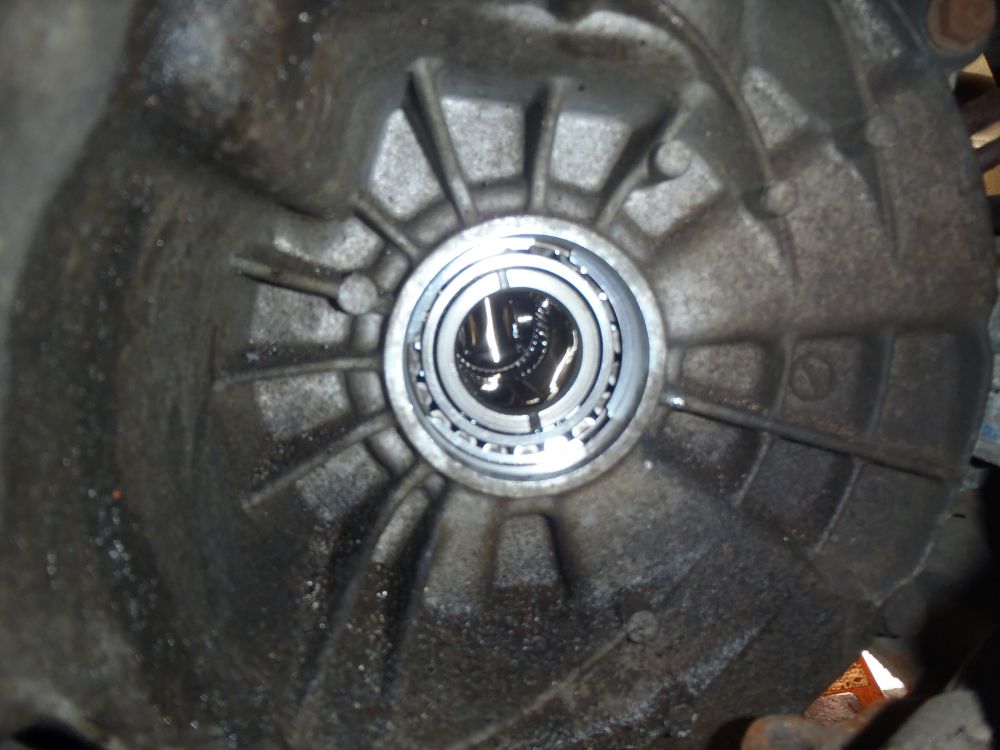
Use a large screwdriver or pry bar to lever the old seal out, being careful not to scratch the bore it goes in. Here is the gearbox with the seal removed.
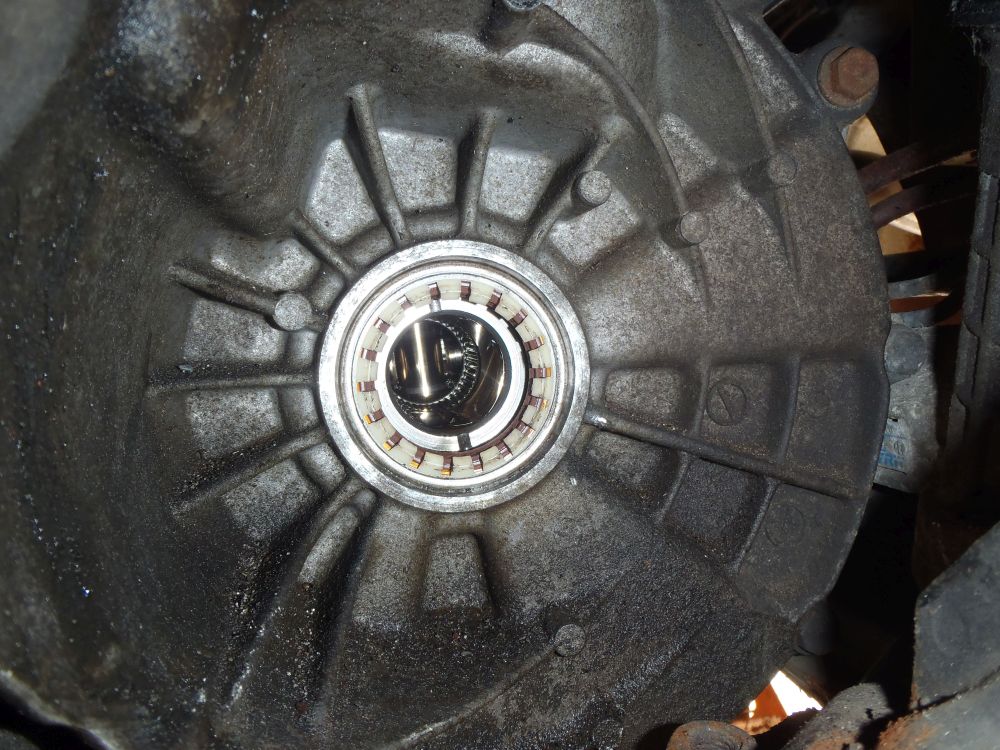
Ensure the bore is clean and lubricate the new seal with a bit of fresh gearbox oil before carefully pushing it into the gearbox. Make sure it goes in straight and seats properly.
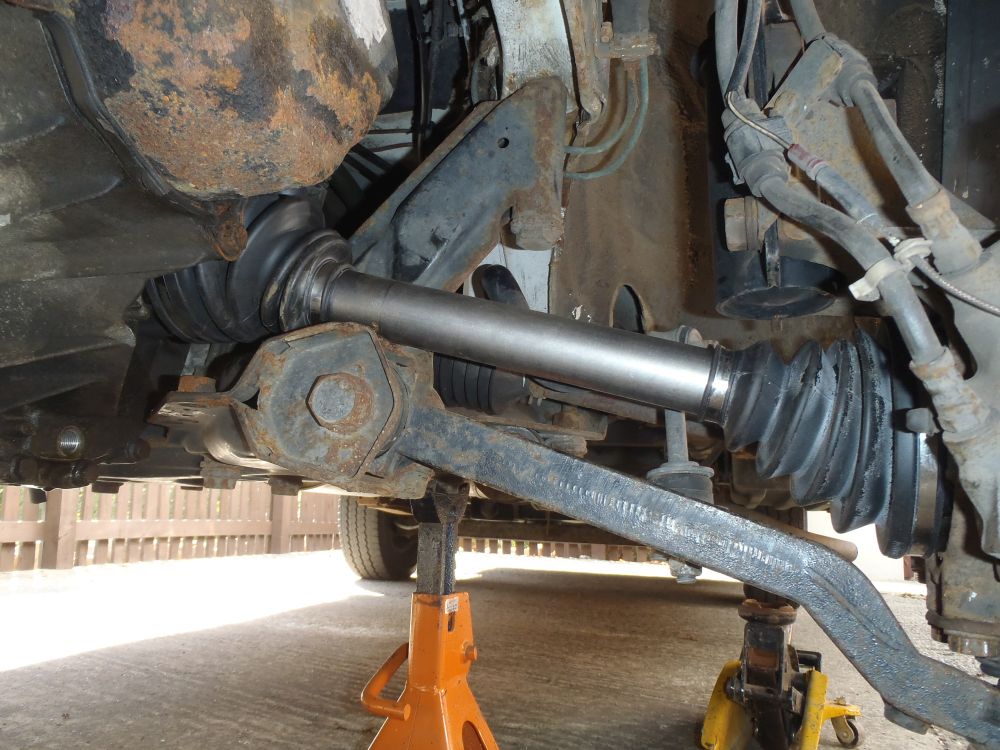
Here is the new driveshaft in place and everything reassembled. Be careful when inserting the driveshaft into the gearbox that the splines don’t damage the seal as it goes in as this will make the new seal leak – a helper can be handy here to take the weight of the driveshaft while you guide it into place.
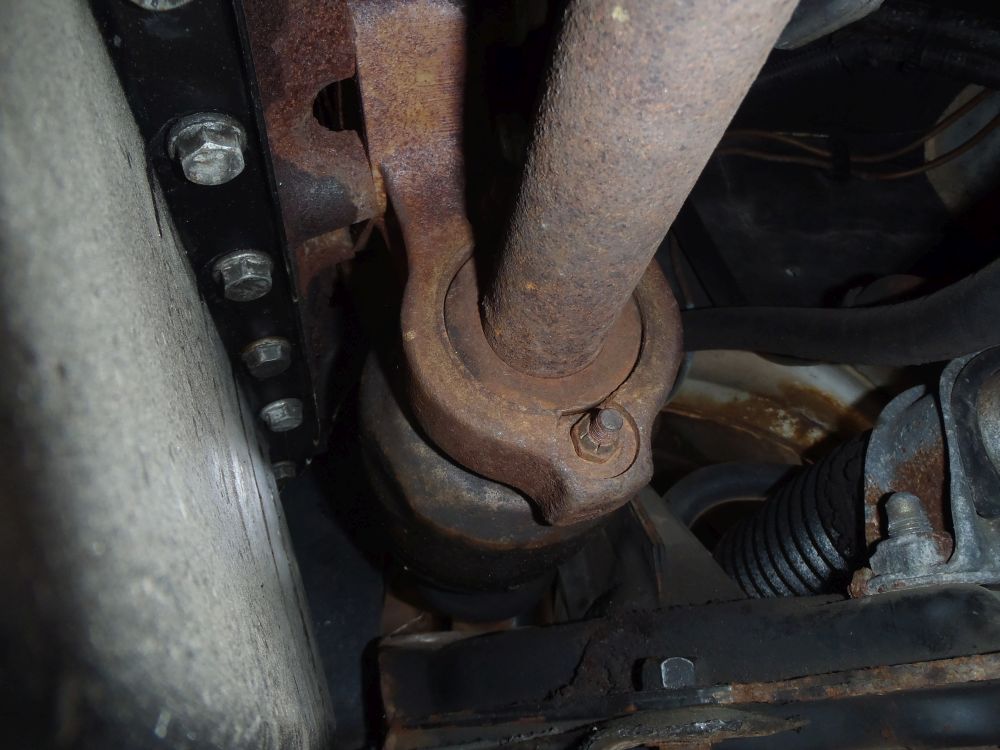
The process for replacing the right hand driveshaft is essentially the same except it has an intermediate bearing to support the inboard CV joint. You will need to unbolt the bearing carrier from the back of the engine block to remove the driveshaft.

Once the driveshaft is out you can take the bearing carrier off, you will be left with something like this (new driveshaft on top, old on the bottom)

And here is the new driveshaft with the bearing carrier fitted, ready to be fitted to the van.
Once everything is back together don’t forget to refill the gearbox with fresh oil – it can be filled by removing the reversing lamp switch from the top of the gearbox and filling through the hole the switch goes in. There is no way of measuring how full the gearbox is so you will need to measure out the correct quantity of oil before filling. Some people recommend slightly over-filling the gearbox to help protect 5th gear, which can be a problem with these boxes. I use 2.7 litres, but my 5th gear had nearly 200000km on it with a 2.5 litre fill level without causing any problems!
If you found this useful you might like to read the other posts on suspension/driveline overhaul:-
Suspension struts, Engine Mounts, Brakes & Wishbones
Any questions or comments? – let me know below!
Found this information useful? – Want to support Motor-Roam?
Click here to find out how!

